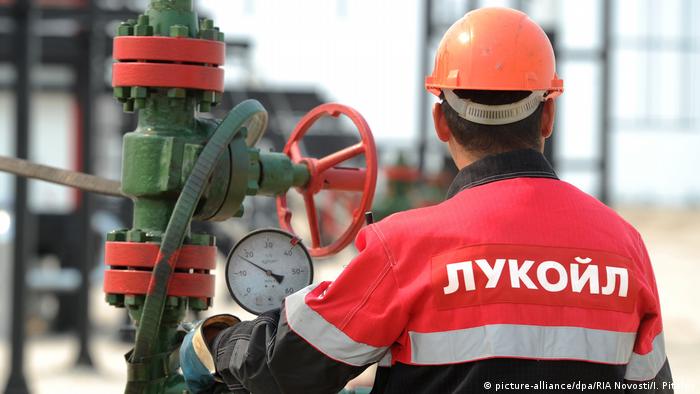
 The European Union is mulling its own Magnitsky Act — meaning more pressure on Russia. Time to ask what impact current US and EU sanctions have had on the creaking Russian economy so far.
The European Union is mulling its own Magnitsky Act — meaning more pressure on Russia. Time to ask what impact current US and EU sanctions have had on the creaking Russian economy so far.
The Dutch government has held talks with EU member states aimed at establishing an EU sanctions regime against Russia based on human rights violations, which is known as an EU Magnitsky Act, adding to existing sanctions.
"It appears to have momentum and is going forward," Bill Browder, who has campaigned for the legislation known as the Magnistky Act in the US, told DW. "If successful, this would have a devastating effect on Putin and his cronies because they keep a huge amount of their money and property in the EU."
But will it?
EU sanctions were established in March 2014 after Russia's encroachment in Ukraine and have been in force since. Reviewed every six month by the European Council, they are now in place until January 31, 2019, and include asset freezing, an import ban on items from the Crimea and Sevastopol and a ban on tourism to the same areas.
The US State Department said two weeks ago Washington intended to impose a new round of sanctions on Russia. The US already slapped Russia with more sanctions in August following the March attack on ex-Russian intelligence agent Sergei Skripal in the UK.
The intended effect is to exert pressure on the Russians and undermine President Vladimir Putin's ambitious foreign policy without damaging other global economies.
Mixed effects
Sanctions have knocked 6 percent off Russia's GDP since 2014, a Bloomberg report noted recently.
The GDP of the "world's biggest energy exporter" is now 10 percent smaller than might have been expected at the end of 2013, before the Crimea crisis, it said.
Lower oil prices have hit the economy, but sanctions are the "bigger culprit," the report said, adding that Russia's economy is over 10 percent smaller compared with what might have been expected at the end of 2013.
Growth has been sluggish at 1-2 percent in the last two years. The International Monetary Fund recently predicted the Russian economy would grow by 1.7 percent in 2018 and 1.8 percent in 2019.
Russia has done much to insulate itself from sanctions, but the government's forecasts of growth of over 3 percent by 2021 are in doubt.
Western sanctions have played a key factor over the past four years, the study by Bloomberg Economics said. "Part of the gap is likely to reflect the enduring impact of sanctions both imposed and threatened over the last five years," Scott Johnson, an analyst at Bloomberg Economics, said.
Inflation-targeting
But the 6 percent gap is also due to other factors, such as the central bank's inflation-targeting strategy and the pessimism that has hit most emerging markets.
''In a short term, the impact of oil prices is much more important for Russia than any sanctions,'' said Sergey Khestanov, a professor at the Russian Presidential Academy of National Economy and Public Administration (RANEPA) . Oil income makes up 40 percent of federal budget revenues and is trading at its highest level in more than four years.
Russia has also been helped by the collapse in the ruble, which has boosted export revenues.
Russian economy adjusts
The Bank of Russia said this week it expected the impact of possible new US sanctions on Russia's economy would be smaller than it was in 2014-2015.
"We are not willing to argue that all the negative effects [of possible new sanctions], which we may face, will affect us in a painless manner, and that it will not have any impact on the Russian economy," the director of the bank's Research and Forecasting Department, Alexander Morozov, said in a statement. "This is certainly not the case. But the effect cannot be overestimated since in most of the scenarios it will be much less than the one we observed in 2014-2015."
Countereffects
One side effect has been to induce the central bank to create reserves, making the Russian economy more stable after the Finance Ministry introduced a fiscal rule protecting the economy from fluctuations in oil prices.
The other factor is of course political. Sanctions have so far failed to dislodge Putin or create much of a dent in his hold on power.



.jpg/250px-ElbeDay1945_(NARA_ww2-121).jpg)





